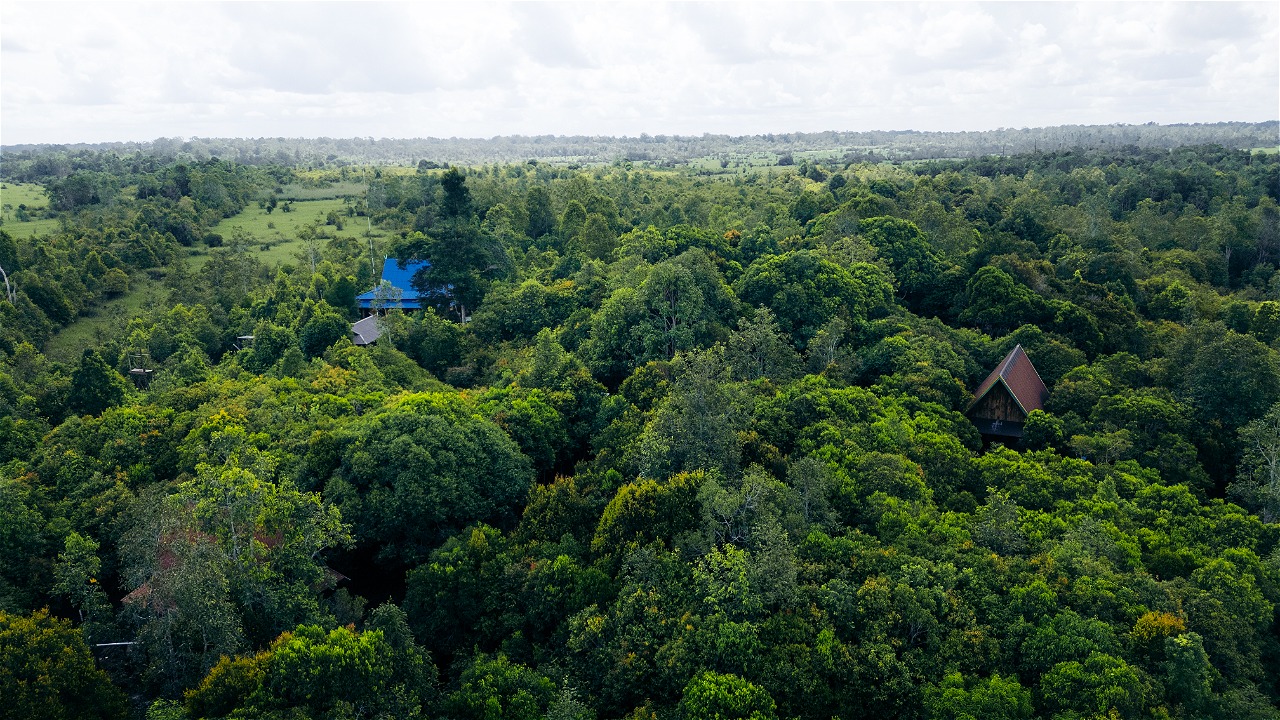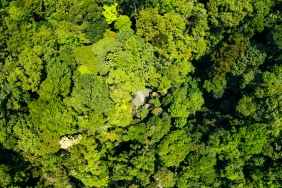ASEAN BANKING SECTOR PLAYS A KEY ROLE IN MEETING GOVERNMENT TARGETS FOR CLIMATE CHANGE AND SDGS
Jakarta, 3 October, 2017 - Today WWF and the Centre for Governance, Institutions and Organizations (CGIO) of The National University of Singapore (NUS) launched a report titled "Sustainable Banking in ASEAN: Addressing Forest, Landscape, Climate, Water and Community Issues". The report assesses the disclosure levels of 34 banks on aspects of Corporate Governance (GCG) and Environmental, Social and Governance (ESG) integration with reference to international and national frameworks[1]. The report benchmarks the progress of each bank's ESG integration and identifies areas for improvement.
The report states that banks in Indonesia and Singapore are ahead in terms of sectoral sustainable financing policy disclosure compared to other ASEAN countries, namely the two Indonesian national banks BRI and BNI, and Singapore's DBS bank. The report also states that Indonesia is at the forefront of ESG product development and portfolios in ASEAN.
Seven banks voluntarily committed to the sustainable finance initiative, four of which are Indonesian banks, namely BRI, BNI, Bank Mandiri and BCA. All four are committed to being first movers for sustainable banking in Indonesia, and BNI is the only bank in this report that is a member of UNEP Financial Institution.
Twenty-one banks in ASEAN recognize that the activities they finance can have adverse environmental and social impacts. But none of the banks understand how they manage such climate and sustainability risks at a portfolio level.
As a signatory to the Paris climate change agreement, Indonesia has announced a commitment to achieve its Greenhouse Gas (GHG) emissions reduction target of 26 percent by 2020 and 29 percent by 2030. Indonesia's climate change targets build on the government's commitment to realizing the Sustainable Development Goals (SDGs) to ensure aspects of food security, sustainable management of forests, oceans, and water, as well as biodiversity loss and other issues are addressed.
Recognizing the important role of the financial services sector, the government through the Financial Services Authority (OJK) has issued a regulation on the Implementation of Sustainable Finance No 51 of 2017 to encourage accountability for the implementation of sustainable finance in Indonesia.
Aditya Bayunanda, Director of Policy, Sustainability and Transformation of WWF-Indonesia said, "The banking sector as the driver of the real sector, plays an important role in the success of the Indonesian government's efforts to meet emission reduction targets and realize SDGs. Banks in Indonesia should immediately implement OJK regulations to implement the principles of environmental, social and governance integration as a whole and demonstrate their contribution."
WWF-Indonesia is ready to work with national banks to build ESG integration capacity and improve understanding of important ESG issues such as climate, water, deforestation and their relation to business.
[1] The indicators used draw on international frameworks, standards and initiatives such as the G20/OECD Corporate Governance Principles, the Global Reporting Initiative (GRI), International Integrated Reporting Council (IIRC), Task Force on Climate-related Financial Disclosure (TCFD) and Sustainability Accounting Standard Board (SASB), as well as national principles and guidelines on corporate governance and sustainability reporting.





